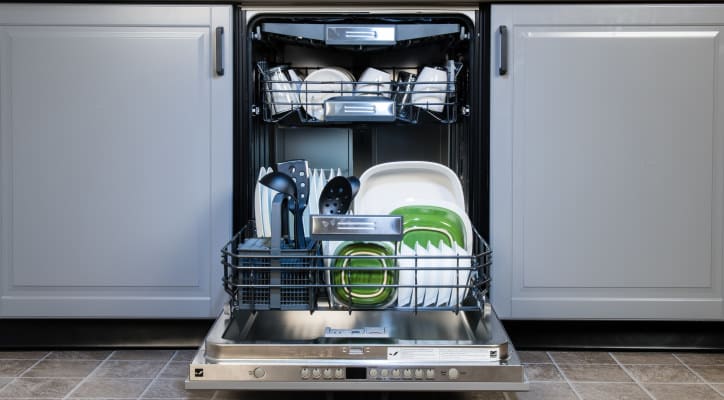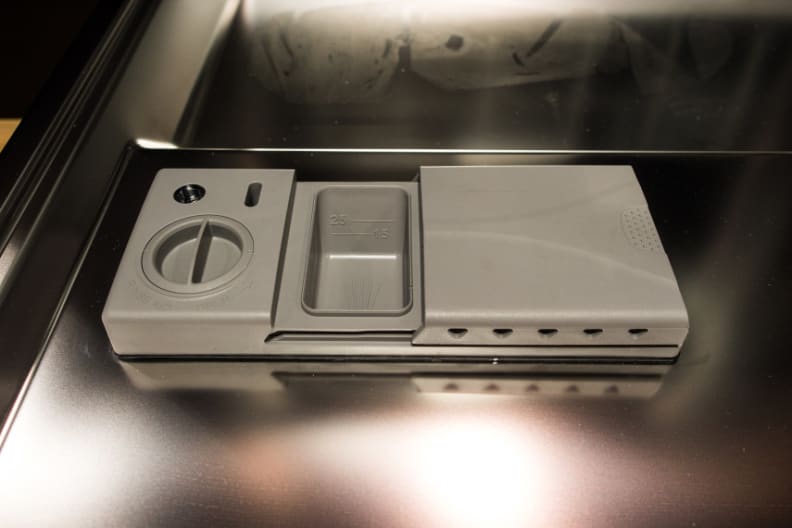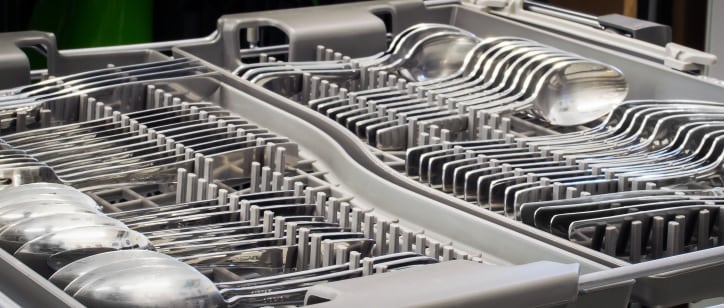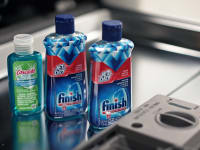I tried eco-friendly alternatives to rinse aid—here's what I learned
Dishes not getting dry? Try these tips!
 Credit:
Reviewed.com / Jackson Ruckar
Credit:
Reviewed.com / Jackson Ruckar
Recommendations are independently chosen by Reviewed's editors. Purchases made through the links below may earn us and our publishing partners a commission.
The day after Christmas, I bought a new dishwasher. Yes, the old one died on Christmas Eve, but that’s a story for another day.
Little did I know when I purchased this beauty that I was beginning a lifelong relationship with rinse aid.
What rinse aid does
Dishwasher rinse aid is not about rinsing. It helps dishes dry faster.
When the dishwasher sprays the dishes with hot water in the final rinse cycle, the rinse aid stops the water from beading up and sticking to the dishes. Instead, it rolls off the dishes, off the sides of the tub, and down the drain.
But the chemicals that make rinse aid effective are deposited in minuscule amounts on our dishes. The rest of it splashes out into the environment. I found both of those thoughts unappealing, so I sought an alternative.
Can you use vinegar instead of rinse aid?
Posts on Pinterest and Houzz recommend using vinegar as a DIY dishwasher rinse aid, and I was interested. Vinegar is a natural way to clean around the house.
And I figured that I could save money, as a gallon of store brand distilled white vinegar costs me about $2.50. In comparison, a 23-ounce bottle of name brand rinse aid goes for about $10. Doing the math, that’s over $100 a year just to have dry dishes.

You can adjust your dishwasher's rinse aid dispenser to use less.
So, I filled the (empty) rinse aid container with white vinegar and loaded the dishwasher. Two and a half hours later, when the cycle finished, I opened the door and discovered that my plates and glasses were sparkling, with no haze or vinegar odor. I could have held a dinner party right then and there!
The sparkle is because the acidic vinegar dissolves hard water minerals that can be left behind on your dishes during drying. These minerals cause water spots. Citric acid, another common homemade dishwasher rinse aid, has the same mineral-removing effect.
So vinegar isn’t an exact replacement for rinse aid because it doesn’t help with drying, but it does solve a potential side effect of water being left behind on your dishes.
Better rinse aid alternatives
Would I use vinegar again? Well, after finding out that its acidity can deteriorate parts of some machines, I might not. Maybe I'd consider an environmentally friendly rinse aid like the one Ecover makes.
But it turns out there are other ways to get dry, spotless dishes. Alvin Chan is a senior product manager at BSH Home Appliances, the parent company of Bosch dishwashers, and he told us about some other options. "Consumers have different choices," he said. "Vinegar is not the only alternative."
What an Expert Recommends
While Chan didn't advocate for vinegar as a rinse aid, he had other suggestions:
• If you're concerned about chemicals, you can adjust rinse aid to a very low level. Dial it down. If there are a lot of spots, you can dial it back up.
• Use a water softener. Some dishwashers even have them built in.
• Or, simply skip it. That isn't recommended, but if you do skip the rinse aid, the dishwasher may be able to deal. "Our dishwasher can detect if there's no rinse aid. It actually increases the temperature of the final rinse and makes the final rinse cycle longer," Chan said.
Loading and Unloading
The way you load a dishwasher can affect the way dishes dry. Lay bowls at an angle so water can run off. Don't let the dishes touch. And always unload the bottom rack first, so any residual water on the upper rack won't spill on the dishes below.

Make sure your silverware isn't stuck together. If your dishwasher has a third rack, try putting your silverware up there.
Use the third rack for silverware, if you have one. It decreases "spooning" so cutlery comes out cleaner and drier than washing it in the basket. I've already tried this, and it helps.



